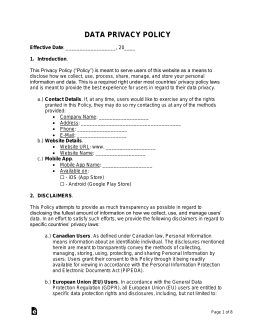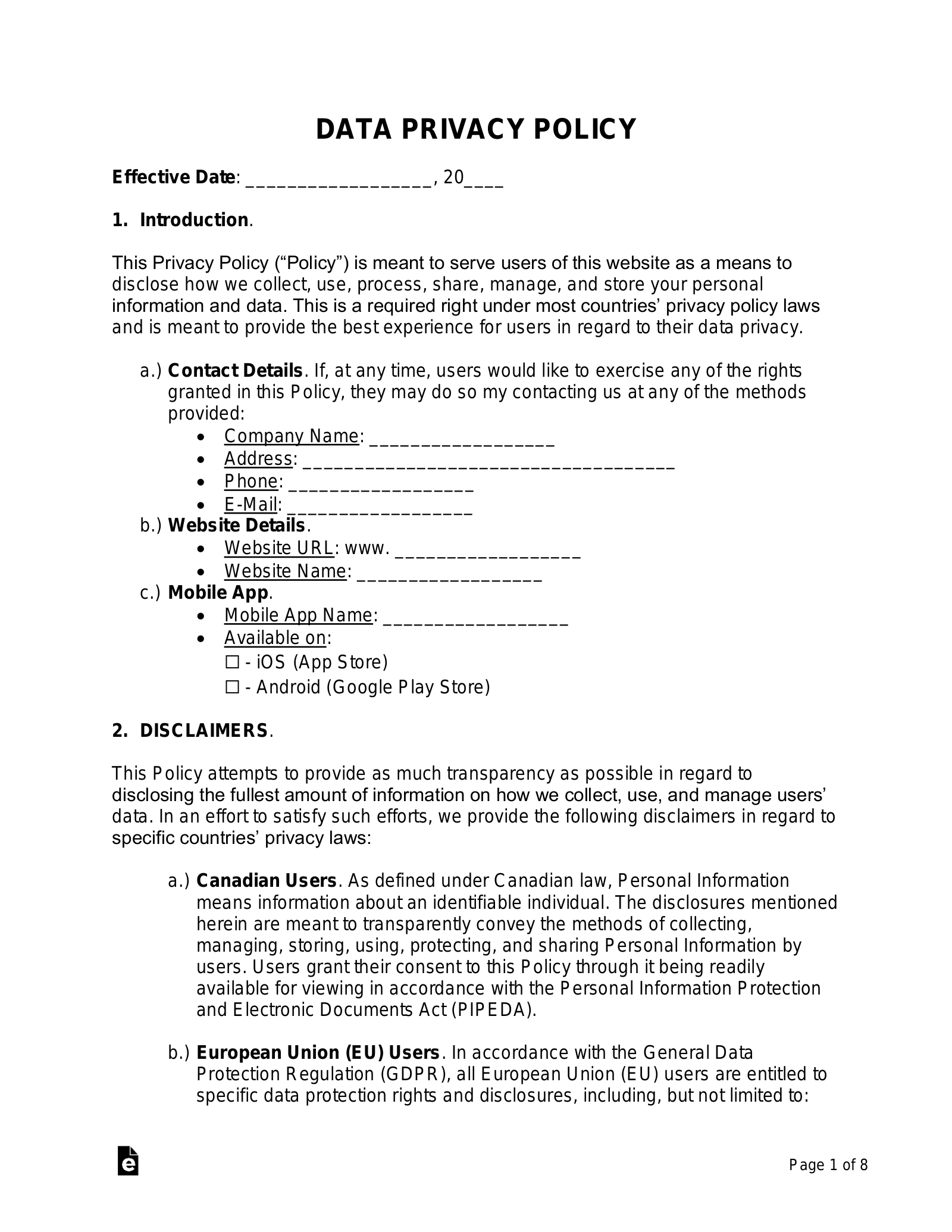Updated February 01, 2023
A data privacy policy discloses publicly to all users how personal information is collected, tracked, and managed. It is commonly placed in a website’s footer and accessible on all web pages. A privacy policy is required by users in the USA (CCPA) and the European Union (GDPR).
4 Types of Personal Data Identifiers |
1. Unique Identifiers
A unique identifier is information that can be used to recognize a specific individual or family over time and across different services. Data that can be described as a unique identifier is a person’s:
- Real name or alias
- E-mail address
- Social security number (SSN)
- Driver’s license number
- Passport number
2. Probabilistic Identifiers
A probabilistic identifier is data that can be used to identify a consumer or a device “more than probable than not” (§ 1798.140(p)) based on the information provided. Such examples include:
- Postal address
- Customer records (per § 1798.80)
- Educational information not publicly available
- Professional information
- Employment-related information
Biometric Identifiers
Biometric information is any record related to a person’s physical, biological, or psychological characteristics such as:
- Fingerprint, hand, or palm identifiers
- Behavior
- Facial features
- Iris or retina readings
- Intelligence
- Voice recordings
- Keystroke patterns or rhythms
- Sleep durations
- Health and exercise data
Online Identifiers
An online identifier is any trackable data is connected to a consumer and stored on the web such as:
- Account name
- Internal protocol (IP) address
- Geolocation data
- Network activity information
- Browsing or search history
- Any web, application, or advertisement records


